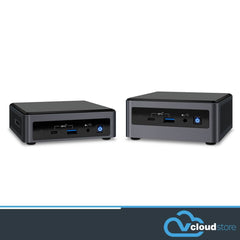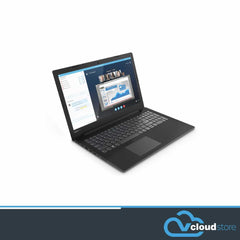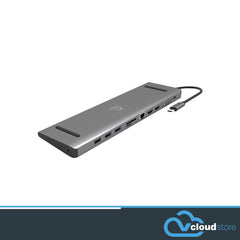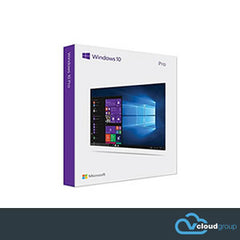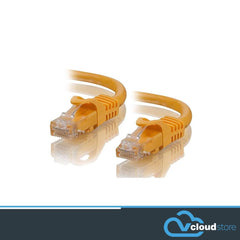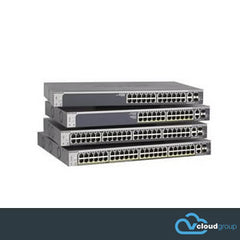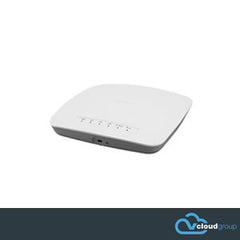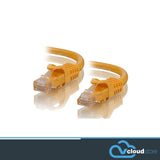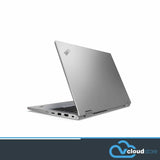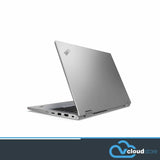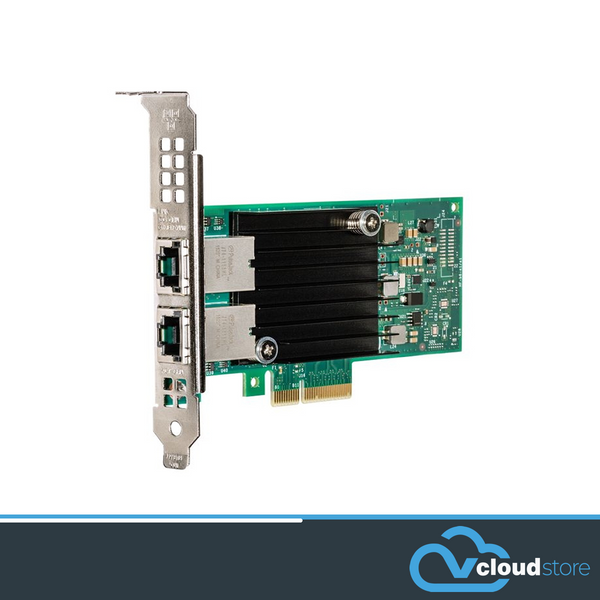
Description:
LENOVO Intel X550-T2 2x Port 10GBase-T Adapter For ST50/SR630/SR550/SR650/SR250/ST550/ST250
The Intel X550 10GBASE-T Adapter is a low cost, low power 10 GbE performance adapter suitable for all data center applications. With support for standard CAT 6a cabling with RJ45 connectors, the X550 offers a low barrier of entry to 10 Gb Ethernet networking.
Features
The Intel X550 adapter has the following features:
- Supports Intel Virtualization Technology for connectivity (VT-c), I/O virtualization advances network connectivity used in today’s servers to more efficient models by providing Flexible Port Partitioning (FPP), multiple Tx/Rx queues, Tx queue rate-limiting, and on-controller QoS functionality that is useful for both virtual and non-virtual server deployments.
- Supports Virtual Machine Device Queues (VMDq) for NIC-based VM queue sorting, enabling efficient hypervisor-based switching. VMDq reduces I/O impact on the hypervisor in a virtualized server by performing data sorting and coalescing in the network adapter.
- Supports SR-IOV for direct assignment - NIC-based isolation and switching for various virtual station instances enabling optimal CPU usage in virtualized environment.
- Provides virtual bridging support that delivers both host-side and switch-side control and management of virtualized I/O as well as the following modes of virtualized operation:
- VEPA: IEEE 802.1Qbg support for Virtual Ethernet Port Aggregator.
- VEB: Virtual Ethernet Bridge support with Intel VT.
- Supports VXLAN/NVGRE Hardware Offloads, stateless offloads that preserve application performance for overlay networks. With these offloads, it is possible to distribute network traffic across CPU cores. At the same time, the X550 offloads LSO, GSO, and checksum from the host software, which reduces CPU overhead.
- Flexible Port Partitioning (FPP), based on the SR-IOV specification, enables virtual Ethernet controllers that can be used by a Linux host directly or assigned directly to virtual machines for hypervisor virtual switch bypass. FPP enables the assignment of up to 64 Linux host processes or virtual machines per port to virtual functions. FPP can be used to control the partitioning of the bandwidth across multiple virtual functions. FPP can also provide balanced QoS by giving each assigned virtual function equal access to 10 Gb/s of bandwidth.
- MSI-X interrupts support minimizes the impact of I/O interrupts by load balancing interrupts across multiple processor cores.
- Low-Latency Interrupts: Allows the adapter to bypass the automatic moderation of time intervals between the interrupts (based on the sensitivity of the incoming data).
- Load balancing on multiple processors, which increases performance on multiprocessor systems by efficiently balancing network loads across processor cores when used with Receive Side Scaling (RSS) from Microsoft or Scalable I/O on Linux.
- Header Splits and Replication in Receive helps the driver focus on the relevant part of the packet without needing to parse it.
- Multiple queues allow packet handling without the waiting/buffer overflow, which provides efficient packet prioritization.
- Mobile and cloud application acceleration: Intel’s Data Plan Development Kit (DPDK) delivers an open driver where users can fine-tune small packet performance.
- Offload features:
- IP, TCP, and UDP checksum offload (IPv4 and IPv6)
- TCP and UDP segmentation/large send offload (IPv4 and IPv6)
- IPsec offload
- Receive Side Scaling for Windows and Scalable I/O for Linux (IPv4, IPv6, and TCP/ UDP)
- IEEE 802.1Q VLAN support with VLAN tag insertion, with stripping and packet filtering for up to 4096 VLAN tags.
- IEEE 802.3x flow control support.
- IEEE 802.1p Class of Service/Quality of Service.
- Support for Advanced Packet Filtering.
- Jumbo frames support (up to 9,500 bytes).
- Teaming support:
- Adapter Fault Tolerance (AFT)
- Switch Fault Tolerance (SFT)
- Adaptive Load Balancing (ALB)
- Virtual Machine Load Balancing (VMLB)
- IEEE 802.3ad (link aggregation control protocol)
- Support for both UEFI and PXE boot.
Technical specifications
The Intel X550 adapter has the following specifications:
- One or Two 10GBASE-T RJ-45 ports
- Supports 100 Mbps, 1 Gbps, and 10 Gbps speeds
- Standard PCIe low-profile card form factor
- PCIe 3.0 x4 host interface
- Power consumption (10GBASE-T): 13.0 W (maximum), 11.2 (typical)

